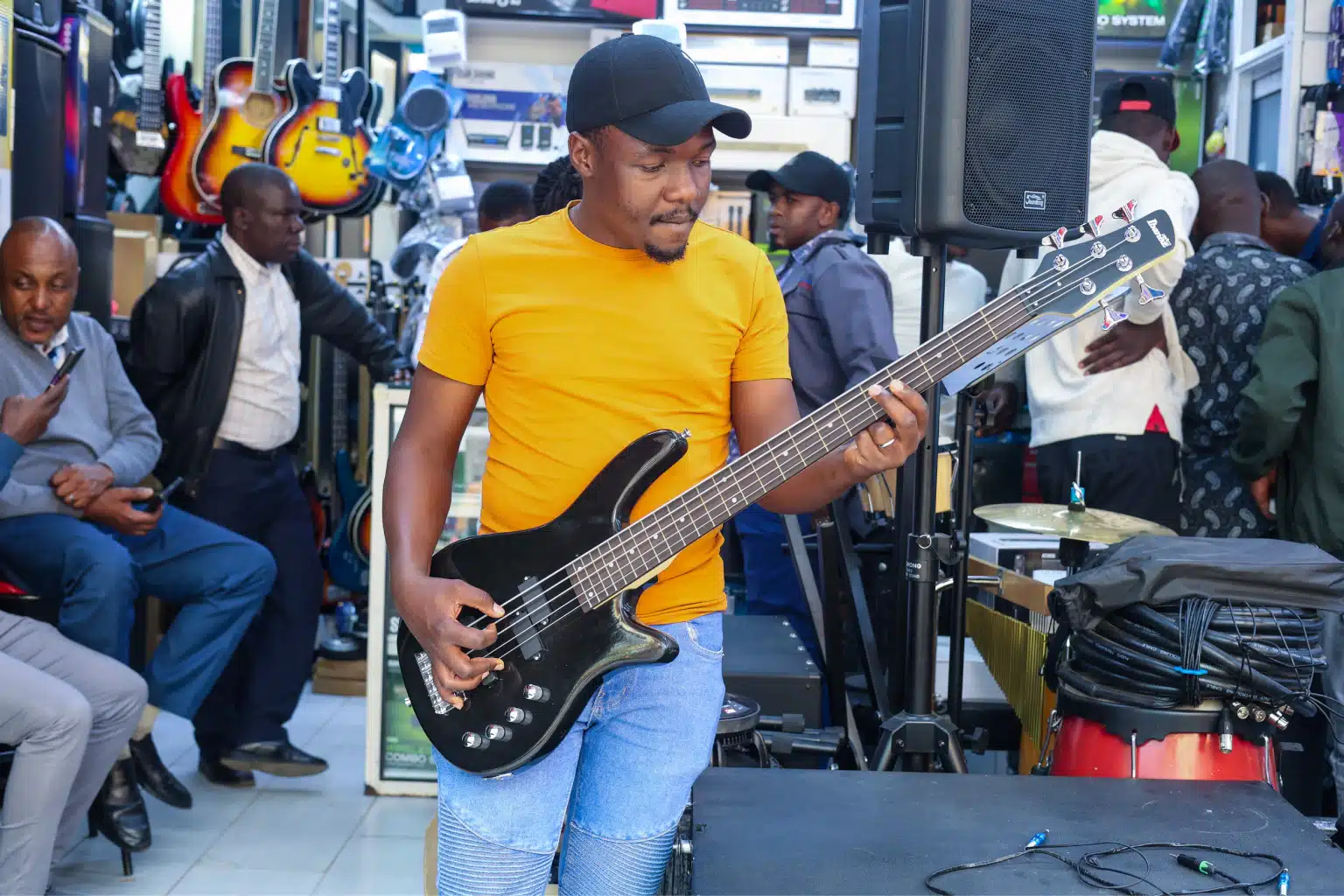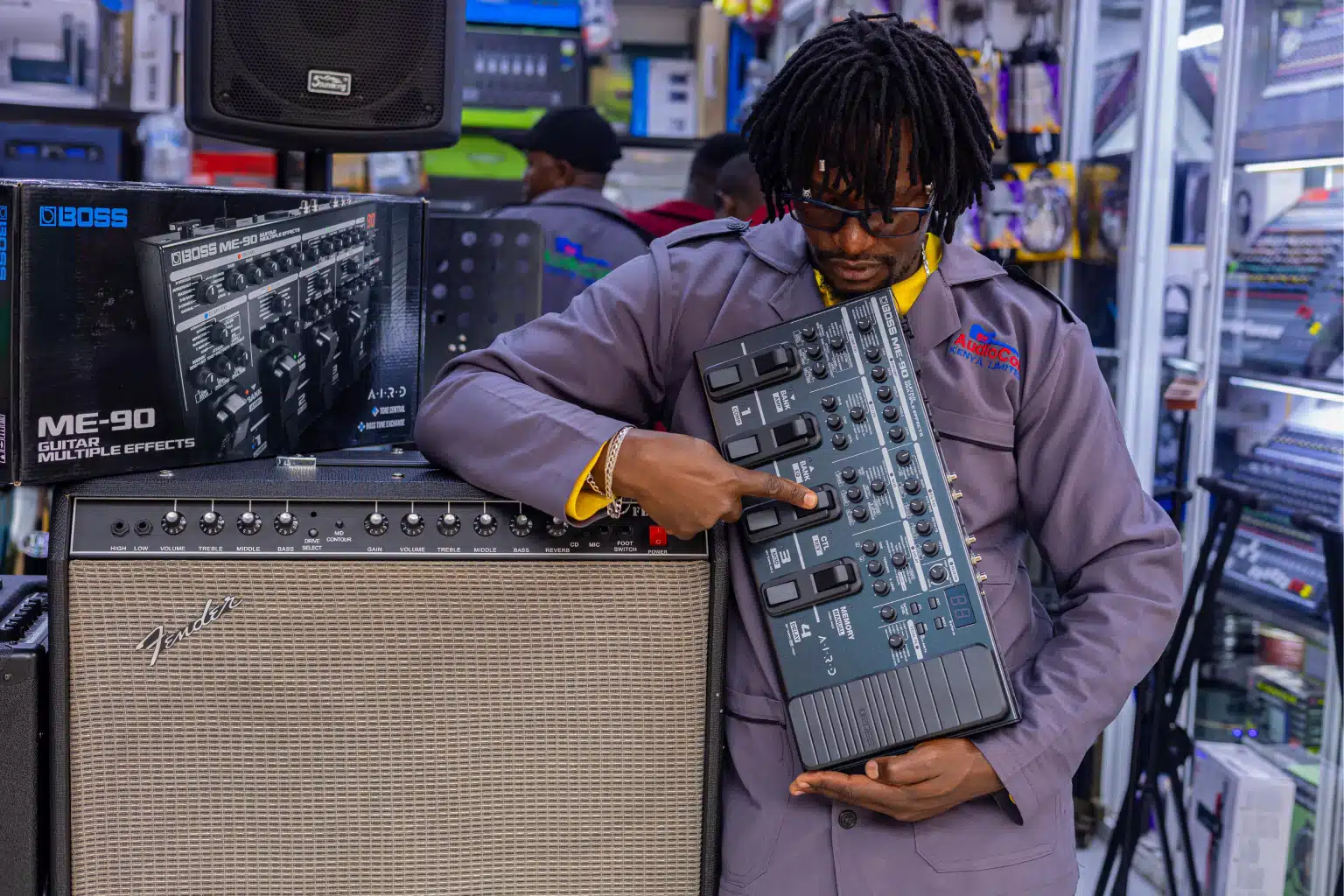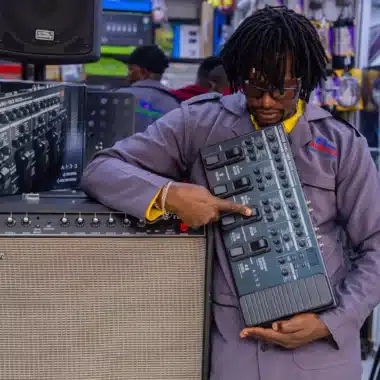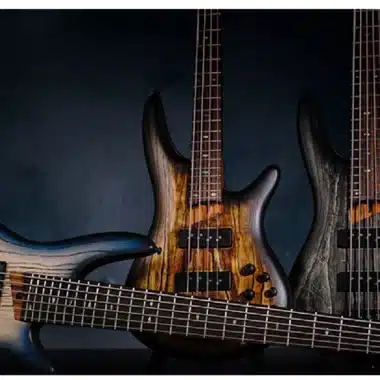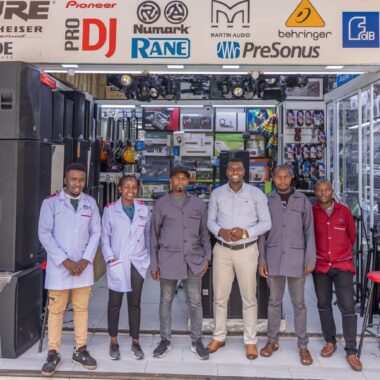Where to Buy Musical Instruments in Nairobi;
1. The Importance of Local Music Stores
Local music stores play a vital role in the vibrant musical landscape of Nairobi, serving as essential hubs for musicians, students, and music enthusiasts alike. These stores do more than simply sell instruments; they foster a community where creativity and collaboration thrive. For aspiring musicians, a local store provides access to the instruments, resources, and knowledge necessary to develop their skills and pursue their passions.
One of the most significant benefits of shopping at musical instrument stores in Nairobi is the opportunity to connect with experienced staff who are often musicians themselves. These knowledgeable professionals can offer personalized advice, helping customers choose the right instrument based on their needs and skill level. This level of expertise is invaluable, especially for beginners who may feel overwhelmed by the variety of options available.
In addition to instrument sales, local music stores often provide a range of services, such as instrument repair and maintenance. Regular upkeep is crucial for ensuring that musical instruments remain in optimal condition, and having a trusted local store to turn to for repairs can save musicians time and money. These services also help to extend the life of instruments, allowing musicians to make the most of their investments.
Moreover, local music stores frequently host workshops, classes, and live performances that bring the community together. These events not only provide a platform for local talent but also create opportunities for musicians to learn from one another. Such gatherings can inspire collaboration, spark new ideas, and cultivate lasting friendships among musicians of all levels.
Supporting musical instrument stores in Nairobi also contributes to the local economy. When consumers choose to buy from these establishments, they are investing in their community and helping to sustain jobs for local musicians, salespeople, and repair technicians. This economic support fosters a thriving music culture that benefits everyone, from aspiring artists to seasoned professionals.
Additionally, local stores often carry a selection of instruments that reflect the rich musical heritage of Kenya. This focus on local craftsmanship allows musicians to connect with their cultural roots and explore traditional sounds that resonate deeply within the community. By choosing to shop at musical instrument stores in Nairobi, customers can discover unique, locally-made instruments that may not be available through larger, international retailers.
In summary, the importance of local music stores in Nairobi extends far beyond the sale of instruments. They serve as community hubs, offering expertise, resources, and support for musicians at all levels. By shopping at these stores, customers can foster their musical journey while also contributing to the local economy and preserving the vibrant cultural heritage of Kenya. Embracing the resources offered by musical instrument stores enriches the entire music community, creating an environment where creativity can flourish and new talent can emerge.
2. Top Music Stores in Nairobi
Nairobi is home to a diverse array of musical instrument stores, each offering unique products and services that cater to musicians of all levels. Whether you are a beginner looking for your first guitar or a seasoned professional seeking high-end equipment, the city’s music shops have something to offer. Here are some of the top music stores in Nairobi that you should consider visiting:
1. The Sarit Centre’s Music Store
Located in the bustling Sarit Centre, this music store is renowned for its extensive selection of instruments, including guitars, keyboards, and percussion. The store’s knowledgeable staff are passionate about music and are always ready to assist customers in finding the perfect instrument. They also offer music lessons, making it a great spot for both learning and purchasing instruments.
2. Kenya Music and Cultural Centre (KMCC)
The KMCC is not only a cultural hub but also a fantastic place to shop for musical instruments. It features a wide range of traditional and modern instruments, from drums and flutes to electronic keyboards. The center often hosts music workshops and performances, allowing customers to immerse themselves in Nairobi’s vibrant music scene while browsing their inventory.
3. Axiom Music
Axiom Music stands out for its focus on high-quality musical instruments and professional audio equipment. Musicians looking for gear used in recording and live performances will find a well-curated selection of products. The staff at Axiom are experienced musicians who can provide insights into the best gear for your specific needs.
4. Sound & Light Solutions
This store specializes in both musical instruments and audio equipment, catering to musicians as well as event planners. From guitars and drums to sound systems and lighting, Sound & Light Solutions has a comprehensive inventory. They also offer rentals for sound and lighting equipment, making it a one-stop-shop for musicians and event organizers alike.
5. Guitar Centre Nairobi
As the name suggests, Guitar Centre is dedicated to string instruments, particularly guitars. This store offers a wide range of acoustic, electric, and bass guitars, as well as accessories like amplifiers and effects pedals. Their staff are passionate about guitars and can provide expert advice on everything from beginner models to professional-grade instruments.
6. Djembe Music
Djembe Music specializes in African instruments, particularly drums, and percussion. The store features a rich selection of traditional instruments, including djembe, kalimba, and marimba, as well as contemporary music gear. Djembe Music is known for its commitment to promoting African music and culture, making it a must-visit for those interested in exploring traditional sounds.
7. Mega Music
Mega Music is a well-established store offering a diverse range of musical instruments, including pianos, synthesizers, and brass instruments. The store is recognized for its competitive pricing and excellent customer service, making it a popular choice among local musicians. Mega Music also hosts regular sales events, allowing customers to find great deals on their favorite instruments.
Nairobi boasts a vibrant array of musical instrument stores, each with its unique offerings and specialties. Whether you’re looking for traditional instruments, modern gear, or expert advice, these top music stores cater to the diverse needs of the city’s musicians. By supporting these local businesses, you not only enrich your musical journey but also contribute to the thriving music community in Nairobi.
3. Online Shopping for Musical Instruments
In today’s digital age, online shopping has revolutionized the way musicians purchase instruments and gear. With just a few clicks, music enthusiasts can explore an extensive range of products, compare prices, and read reviews, all from the comfort of their homes. Online shopping for musical instruments in Nairobi has gained popularity due to its convenience, variety, and the ability to easily access both local and international retailers.
One of the primary advantages of shopping online is the vast selection available. Unlike physical stores, which may have limited stock due to space constraints, online retailers can showcase a more extensive inventory. This means that musicians can find everything from the latest electric guitars and synthesizers to traditional instruments like the mbira and kalimba. Additionally, many online platforms allow customers to filter their searches based on brand, price range, and instrument type, making it easier to locate the perfect item.
Another benefit of online shopping is the ability to compare prices effortlessly. Musicians can browse multiple websites to find the best deals on their desired instruments, ensuring they get the most value for their money. Online marketplaces often feature user reviews and ratings, providing insights into the quality and performance of specific instruments. This feedback can be invaluable, especially for those who may be unsure about which brand or model to choose.
Online shopping also offers the convenience of home delivery. For busy musicians and students, having instruments delivered straight to their doorstep saves time and effort. Many online retailers in Nairobi offer flexible shipping options, including same-day or next-day delivery, which is especially beneficial for those who need their instruments quickly. Additionally, some stores provide free shipping on orders above a certain amount, making it even more economical to shop online.
However, there are some challenges associated with online shopping for musical instruments. One significant drawback is the inability to physically try out an instrument before purchasing. Unlike traditional stores where customers can test instruments, online shoppers must rely on descriptions and reviews. To mitigate this risk, musicians should carefully read product specifications and reviews, and consider purchasing from reputable retailers that offer return policies. A generous return policy allows customers to return an instrument if it does not meet their expectations, providing a safety net for online purchases.
Moreover, while online shopping offers convenience, it can also present challenges regarding customer service. In a physical store, customers can ask questions and receive immediate assistance from knowledgeable staff. In contrast, online inquiries may take longer to resolve, depending on the retailer’s responsiveness. It’s essential for online shoppers to choose retailers known for their excellent customer service and support, ensuring a smooth shopping experience.
Additionally, musicians should be aware of potential shipping costs and import duties, especially when ordering from international retailers. These additional expenses can increase the overall cost of the instrument, so it’s important to factor them into the budget when shopping online.
In summary, online shopping for musical instruments in Nairobi offers a wealth of benefits, including a wide selection, convenience, and the ability to compare prices easily. While there are challenges, such as the inability to test instruments and potential shipping costs, careful planning and research can help musicians navigate the online marketplace successfully. By taking advantage of the resources available online, musicians can find the perfect instruments to enhance their musical journey, whether they are beginners or seasoned professionals.
4. Understanding the Types of Instruments Available
When exploring the world of musical instruments, it’s essential to understand the various types available in Nairobi’s stores, both online and offline. Each category of instrument has its unique characteristics, sound production methods, and playing techniques. This knowledge not only helps musicians make informed purchasing decisions but also enriches their overall musical experience. Here’s a closer look at the main types of instruments you’ll find in the market.
1. String Instruments
String instruments produce sound through vibrating strings, which can be plucked, bowed, or strummed. Common examples include the guitar, violin, cello, and bass. Each string instrument offers a distinct tone and range, allowing musicians to choose based on their preferred music style. Guitars, for instance, are versatile and widely used across genres like rock, jazz, and folk, while violins are prominent in classical and orchestral settings.
2. Wind Instruments
Wind instruments generate sound when air is blown through them. This category includes brass instruments like trumpets and trombones, as well as woodwinds such as flutes, clarinets, and saxophones. Each instrument has a unique timbre, and the choice between them often depends on the musical genre. For example, brass instruments are commonly featured in jazz and marching bands, while woodwinds are staples in orchestras and chamber music.
3. Percussion Instruments
Percussion instruments are characterized by their ability to produce sound when struck, shaken, or scraped. This category encompasses a wide range of instruments, including drums, tambourines, maracas, and xylophones. Percussion instruments are essential for rhythm and can be found in virtually every genre of music. Drums, for example, provide the backbone for rock and pop songs, while traditional African percussion instruments play a significant role in local music styles.
4. Keyboard Instruments
Keyboard instruments include pianos, organs, and synthesizers. These instruments typically feature a keyboard layout, allowing musicians to play multiple notes simultaneously. The piano, known for its expressive range, is a popular choice for various genres, from classical to contemporary. Synthesizers, on the other hand, are widely used in electronic and pop music, offering a vast array of sounds and effects that can be manipulated to create unique compositions.
5. Electronic Instruments
Electronic instruments have gained immense popularity in recent years due to advancements in technology. These instruments can include anything from electric guitars and keyboards to drum machines and samplers. They often incorporate digital features, allowing musicians to create and modify sounds in innovative ways. This category is particularly favored in modern genres like electronic dance music (EDM), hip-hop, and pop.
6. Traditional and Folk Instruments
In addition to Western instruments, Nairobi is rich in traditional and folk instruments that reflect the country’s diverse cultural heritage. Instruments such as the nyatiti, which is a traditional lyre, and the djembe drum, which is integral to many African music styles, can often be found in local music stores. These instruments not only offer unique sounds but also connect musicians to their cultural roots and the rich musical traditions of Kenya.
7. Accessories and Support Equipment
Beyond the instruments themselves, many stores in Nairobi also offer a range of accessories, including cases, stands, and tuners. These items are essential for maintaining and protecting instruments, ensuring that they remain in good condition for years of use. Additionally, stores may provide support equipment such as amplifiers for electric instruments, allowing musicians to enhance their sound during performances.
In summary, understanding the types of musical instruments available in Nairobi is crucial for anyone looking to embark on a musical journey. Whether you’re a beginner seeking your first instrument or an experienced musician looking to expand your collection, being aware of the different categories can help guide your choices. With a wide variety of string, wind, percussion, keyboard, electronic, and traditional instruments available, Nairobi’s musical landscape offers something for everyone, enriching the vibrant culture of music in the city.
5. Factors to Consider When Buying Musical Instruments in Nairobi
Purchasing a musical instrument is an exciting venture, but it also requires careful consideration, especially in a diverse market like Nairobi. With a range of options available, both online and in physical stores, it’s important to understand the key factors that can influence your buying decision. Here are some essential considerations to keep in mind when shopping for musical instruments in Nairobi:
1. Type of Instrument
The first step in your purchasing journey is identifying the type of instrument that suits your musical style and needs. Consider whether you are drawn to string instruments like guitars and violins, wind instruments such as flutes and trumpets, percussion instruments like drums, or electronic instruments such as synthesizers. Each category offers unique characteristics and playing techniques, so choose one that aligns with your musical interests and goals.
2. Budget
Setting a budget is crucial when buying a musical instrument. Prices can vary widely based on the brand, quality, and type of instrument. It’s essential to determine how much you are willing to spend before browsing options. While it may be tempting to opt for the cheapest option, remember that investing in a quality instrument can significantly impact your playing experience and longevity. Look for a balance between affordability and quality, ensuring that your choice fits within your budget without compromising on sound or playability.
3. Quality and Brand Reputation
Researching the quality and reputation of brands is an important factor in making a wise purchase. Established brands often have a history of producing reliable instruments with excellent craftsmanship. Reading reviews and seeking recommendations from experienced musicians can help you identify trustworthy brands. Additionally, visiting local music stores allows you to physically assess the instruments, checking for build quality and materials used.
4. Purpose and Skill Level
Consider your skill level and the intended purpose of the instrument. If you are a beginner, it may be wise to start with an entry-level model that is easier to play and more forgiving of mistakes. Conversely, if you are an advanced musician, investing in a higher-quality instrument that offers better sound and playability may be more appropriate. Think about whether the instrument will be used for personal enjoyment, performing, or recording, as this can influence your choice.
5. Availability of Accessories
When purchasing a musical instrument, it’s essential to consider the availability of accessories such as cases, stands, and maintenance supplies. For instance, guitars require tuners, straps, and picks, while brass instruments need mouthpieces and cleaning kits. Ensure that the accessories you need are easily obtainable in Nairobi, either at the same store or from nearby retailers, to streamline your purchasing process.
6. After-Sales Support and Warranty
Many reputable stores offer after-sales support, which can be incredibly beneficial, especially for beginners. This support can include maintenance tips, repair services, and advice on playing techniques. Additionally, check if the instrument comes with a warranty, which provides peace of mind in case of any defects or issues. A good warranty can protect your investment and ensure you have a reliable instrument.
7. Buying New vs. Used Instruments
Deciding between new and used instruments can significantly impact your purchase. New instruments come with the latest features and warranties but can be more expensive. Used instruments can offer great value, but it’s important to thoroughly inspect them for wear and tear. Consider having a knowledgeable friend or a professional check used instruments to ensure they are in good condition before making a purchase.
8. Local Market Trends
Finally, being aware of local market trends can help you make an informed decision. Nairobi’s music scene is vibrant and constantly evolving, and understanding popular genres and instrument preferences in the area can guide your choice. Attend local music events or connect with fellow musicians to gain insights into what instruments are in demand and which stores are highly recommended.
Buying a musical instrument in Nairobi involves careful consideration of various factors, including the type of instrument, budget, quality, and purpose. By taking the time to evaluate these aspects, you can make a well-informed decision that enhances your musical journey and ensures a satisfying experience with your new instrument. Whether you’re a beginner or an experienced musician, thoughtful consideration will lead you to the perfect choice for your musical needs.
6. Supporting Local Music Communities
Nairobi is home to a vibrant and diverse music scene that reflects the rich cultural heritage of Kenya. Supporting local music communities is essential for fostering creativity, nurturing talent, and sustaining the arts within the city. When you buy from musical instrument stores in Nairobi, you contribute to this ecosystem, enabling musicians and artists to thrive. Here are several ways in which you can actively support local music communities and the significant impact this support can have.
1. Patronizing Local Music Stores
One of the most direct ways to support local music communities is by purchasing instruments, accessories, and other musical supplies from Nairobi’s music stores. These stores often stock a wide range of both local and international brands, ensuring that musicians have access to quality instruments. By choosing to shop locally, you help sustain these businesses, which in turn can invest in the community through workshops, events, and collaborations with musicians. Supporting these stores also helps maintain a unique cultural identity, as they often carry traditional instruments that reflect Kenya’s musical heritage.
2. Attending Live Performances
Live music events are a cornerstone of any music community, providing a platform for artists to showcase their talents. By attending local concerts, festivals, and open mic nights, you not only enjoy great music but also help support the musicians financially. Ticket sales and merchandise purchases at these events contribute to the livelihoods of local artists, allowing them to continue creating and performing. Moreover, your presence at these events boosts the visibility of local musicians, helping them gain recognition in the broader music scene.
3. Promoting Local Artists
In today’s digital age, social media plays a significant role in promoting music and artists. By sharing your favorite local musicians on platforms like Instagram, Facebook, and Twitter, you help amplify their reach and introduce them to new audiences. Writing reviews, creating playlists featuring their music, and engaging with their content can significantly increase their visibility. This promotion can lead to new opportunities for local artists, such as collaborations, gigs, and sponsorships, ultimately contributing to a thriving music culture.
4. Participating in Community Music Programs
Many local music stores and organizations offer community programs that provide music education, workshops, and collaborative projects. Participating in these programs is a great way to engage with the local music scene. Whether you’re a beginner looking to learn an instrument or an experienced musician wanting to share your knowledge, getting involved fosters community bonds and encourages collaboration among musicians of all skill levels. These programs often focus on traditional music styles and instruments, helping to preserve and promote Kenya’s cultural heritage.
5. Supporting Local Music Festivals and Competitions
Nairobi hosts numerous music festivals and competitions that celebrate local talent and bring together musicians from various genres. By attending or volunteering at these events, you contribute to the vibrancy of the local music scene. Supporting these initiatives not only provides exposure for local artists but also creates a sense of community among musicians and their fans. Additionally, consider sponsoring or donating to these events if possible; financial contributions can make a significant difference in their success and sustainability.
6. Engaging with Local Music Organizations
Many organizations in Nairobi are dedicated to supporting and promoting local music, whether through education, advocacy, or performance opportunities. Engaging with these organizations can help strengthen the local music community. You might consider becoming a member, donating, or volunteering your time and skills. These organizations often have initiatives aimed at empowering underrepresented musicians, providing resources and support for aspiring artists.
7. Collaborating with Local Musicians
If you are a musician yourself, consider collaborating with local artists. This not only enriches your own musical experience but also strengthens the community by fostering connections between artists. Collaborative projects can take many forms, from recording sessions to joint performances, and they often lead to the creation of unique music that blends various styles and influences. These partnerships can help elevate the profiles of all involved and create a supportive network within the local music community.
8. Encouraging Music Education
Lastly, advocating for music education in schools and community centers is crucial for nurturing the next generation of musicians. Supporting initiatives that provide music lessons and access to instruments for young people helps ensure that the music scene in Nairobi continues to flourish. By encouraging music education, you contribute to a future where local talent can thrive and evolve, preserving the rich cultural landscape of Kenya.
Supporting local music communities in Nairobi is a multifaceted endeavor that can take many forms, from shopping at local music stores to promoting artists and participating in community programs. By engaging with the local music scene, you play a vital role in nurturing creativity and ensuring the continued growth of the arts in the city. Your support not only enriches your own musical journey but also strengthens the bonds within the community, helping to create a vibrant cultural tapestry that celebrates the diverse sounds of Nairobi.
7. Conclusion
Finding the right musical instruments in Nairobi can significantly enhance your musical journey. With a variety of local stores offering expert advice, diverse selections, and essential support services, you’re sure to find the perfect instrument for your needs.
Additionally, the option of online shopping provides convenience and accessibility to a broader range of products. Whether you prefer traditional instruments or modern gear, Nairobi’s music community is ready to support you every step of the way. By investing in local music stores and engaging with the community, you’re not only enhancing your musical experience but also contributing to the vibrant tapestry of Nairobi’s rich musical culture.

